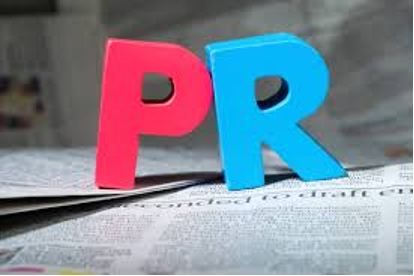The marketing world is evolving rapidly, with 2025 poised to introduce new challenges and opportunities. From advanced AI applications to privacy-driven strategies, the key to success will be adaptability and innovation. Below, we explore the top marketing trends to watch and how your brand can leverage them to stay ahead.
1. AI-Powered Personalization
Artificial intelligence (AI) is transforming how brands engage with their audiences, enabling hyper-personalized experiences at an unprecedented scale. Searches for “AI marketing tools” have skyrocketed by 967% over the past two years, highlighting the growing demand for AI-driven solutions to enhance marketing efforts. From predictive analytics to dynamic content creation, brands are increasingly turning to AI to optimize campaigns and deliver tailored customer interactions.
By 2025, AI is expected to be an indispensable tool across industries. It will refine predictive analytics, enabling businesses to anticipate customer needs with greater accuracy. AI can also provide real-time optimization, allowing brands to adjust ad targeting dynamically based on audience behavior. For example, an AI-powered recommendation engine can analyze purchasing habits to suggest highly relevant products or use customer data to craft individualized content that resonates more effectively.
This shift toward AI-driven marketing is setting a new standard for engagement and efficiency, empowering businesses to not only understand their customers better but to act on those insights instantly. The result? Campaigns that are not just smarter but also more impactful.
2. Immersive and Interactive Technologies
Augmented reality (AR) and virtual reality (VR) are no longer confined to entertainment—they are transforming industries ranging from retail to business services. By 2025, these tools will play a critical role in creating immersive experiences that bridge the gap between the digital and physical worlds.
For consumer services, AR allows customers to “try before they buy.” For example, home improvement brands like Home Depot enable users to visualize paint colors on their walls using AR apps. Similarly, beauty brands such as Sephora offer virtual try-on tools for makeup, allowing customers to experiment with products from the comfort of their homes. These applications reduce friction in the purchase journey, building confidence and increasing conversions.
In B2B industries, VR is proving valuable for virtual training and product demonstrations. Manufacturing companies use VR to showcase large-scale equipment to potential buyers without needing on-site visits. Another example is in architecture and construction, where firms leverage VR to provide virtual walkthroughs of building designs, enhancing collaboration with clients and stakeholders.
By integrating AR and VR, businesses can offer practical, interactive experiences that engage customers, streamline decision-making, and ultimately drive growth.
3. Zero-Party Data and Privacy-First Marketing
The era of third-party cookies is coming to a close, and with it, brands must rethink how they gather and utilize customer data. Zero-party data—information that customers willingly share—will take center stage. Tools like surveys, quizzes, and loyalty programs will enable businesses to collect this data while building trust and transparency with their audiences.
This shift is about more than just compliance; it’s an opportunity to create deeper, more meaningful connections. By respecting privacy and offering value in exchange for data, brands can position themselves as trustworthy and customer-centric. In 2025, robust data strategies will be critical for long-term success.
4. Short-Form Video Content
Short-form video remains one of the most powerful tools for capturing attention with 89% of consumers confirming they want to see more videos from brands. Platforms like TikTok, Instagram Reels, and YouTube Shorts have driven the popularity of snackable, engaging content that resonates with audiences across demographics.
As attention spans shrink, the ability to tell compelling stories in under a minute becomes essential. Brands that lean into this format—using humor, authenticity, and trend-based content—will see higher engagement and brand awareness. Short-form video will be especially vital for connecting with Gen Z, who prefer dynamic and visually engaging content.
5. Omnichannel Integration
Consumers today expect seamless experiences across all touchpoints, whether online, in-store, or through social media. A cohesive omnichannel strategy ensures that interactions feel unified and personalized, regardless of where or how customers engage.
Data integration is key to making this work. For example, a customer browsing online might receive a personalized email offer encouraging them to visit a physical store, where their preferences are already known. Brands that embrace omnichannel marketing will not only improve conversions but also enhance customer satisfaction and loyalty.
6. Advanced Analytics for Real-Time Insights
As consumer behaviors grow increasingly complex, advanced analytics will be indispensable for understanding and optimizing the customer journey. By 2025, AI-driven tools will enable marketers to analyze performance across multiple channels and make adjustments in real time.
For example, predictive analytics can help identify which products a customer is likely to buy next or suggest the optimal time to launch a campaign. This level of insight allows brands to stay agile and maintain a competitive edge in a rapidly changing market.
Conclusion
The trends shaping 2025 demonstrate the growing importance of innovation, personalization, and trust in marketing. From leveraging AI and immersive technologies to mastering omnichannel strategies, businesses that embrace these changes will set themselves apart in a competitive landscape.
Don’t wait to prepare for these shifts—start building your strategy now. For expert guidance in navigating these trends and creating a tailored marketing plan, contact us today. Let’s work together to position your brand for success in 2025 and beyond!



